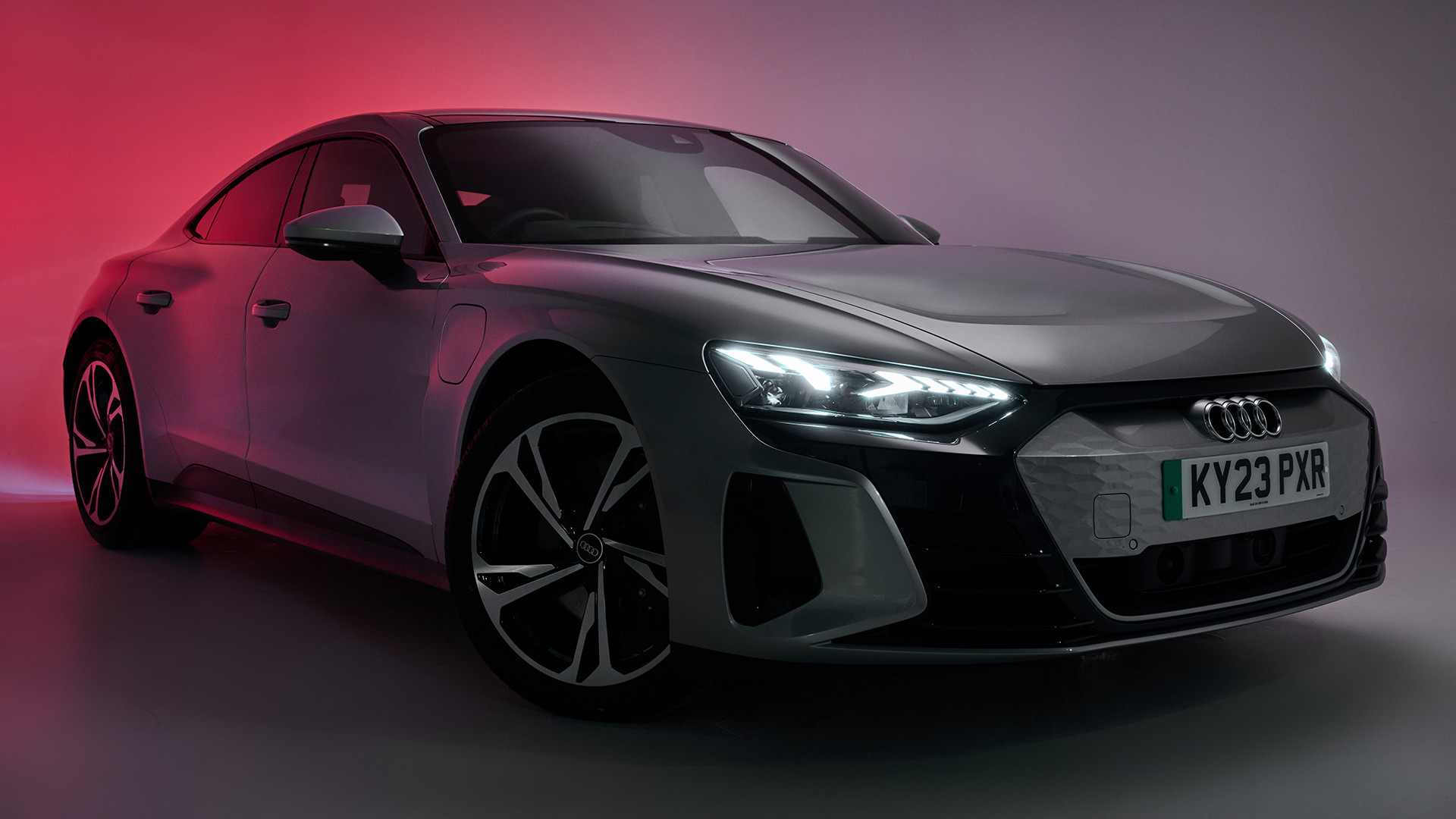
The Audi e-tron GT is a vision of the future. This car is the best EV in Audi’s range; the flagship all-electric offering and one of the few non-SUV models on the market. First launched in 2021, this Gran Turismo model is here to prove that you can still have a sporty performance car with an electric motor.
As much as I love electric cars, the SUV shape is rarely sexy – except maybe the BMW iX M60 and the Lotus Eletre. When people fall in love with cars it's the hypercars, two-door sports cars and gran turismos that really excite. So for electric power to be embraced by car lovers, we need to see more of these models sporting a big old battery and electric motor.
Audi understands this. It’s cars like the TT and R8 that drivers dream of owning, and helps to promote its more sedate compacts, saloons and SUVs. So while Audi’s electric range includes three more practical SUV models, it’s the e-tron GT that is the pin-up.
So does the GT do enough to tempt people to buy it – or to buy one of its other e-tron models? I’ve been driving this car for a few months now, and with a range of long and shorter drives under my belt, I can confirm that it is a rather special EV. It’s also surprisingly well-priced.
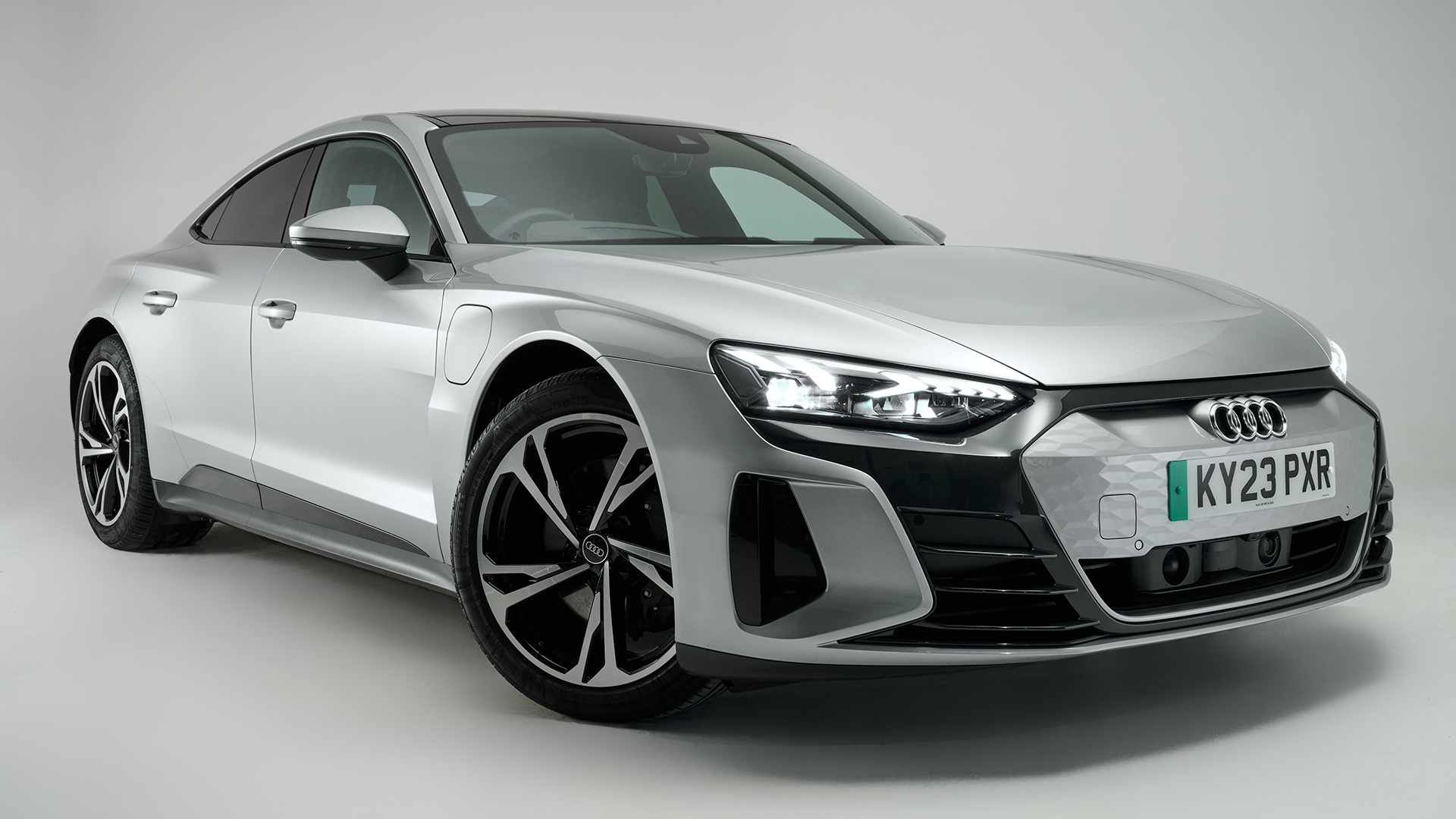
Price and availability
The Audi e-tron GT Quattro starts from £87,800 / $99,900. There is also a sportier RS e-tron GT model, which gets a serious performance boost and that starts from £119,950 / $139,900. A lot of the tech features, like the parking assistance, head-up display and adaptive cruise control, don’t come as standard on the base model. If you want these on board you will look to pay at least £91,635 / $111,190.

Design
Size-wise the e-tron GT is probably closest to the Audi A7. It is actually built on the same platform as the Porsche Taycan, a car that definitely has the look and feel of a sports car despite being a full EV. This is a four-door sportback model, rather than an all-out sports car like the R8. So, it’s still very much a practical solution for drivers. The design itself though definitely takes cues from the R8.
It has the same narrow, elongated LED headlights, flared wheel arches and angular grill as the R8, making it feel sporty. At the back, there are elements of the TT Coupe – the curved boot, with the rear lights joined by a long LED panel, giving a futuristic edge.
There’s an adjustable rear spoiler on the back too, that is almost hidden when parked or at slower speeds. However, it will automatically raise to its first position at just under 56 mph and then raise again to the performance position at just over 105 mph – you can also adjust this manually.
Despite its sporty looks, the e-tron GT is still a big car. It is almost 5 metres long and weighs just over 2.3 tonnes (2347kg). The low height (1.41m) makes the car feel smaller, though you do notice it when parking or manoeuvring around busy streets – though rear-wheel steering is also available as an option for more nimble turning.
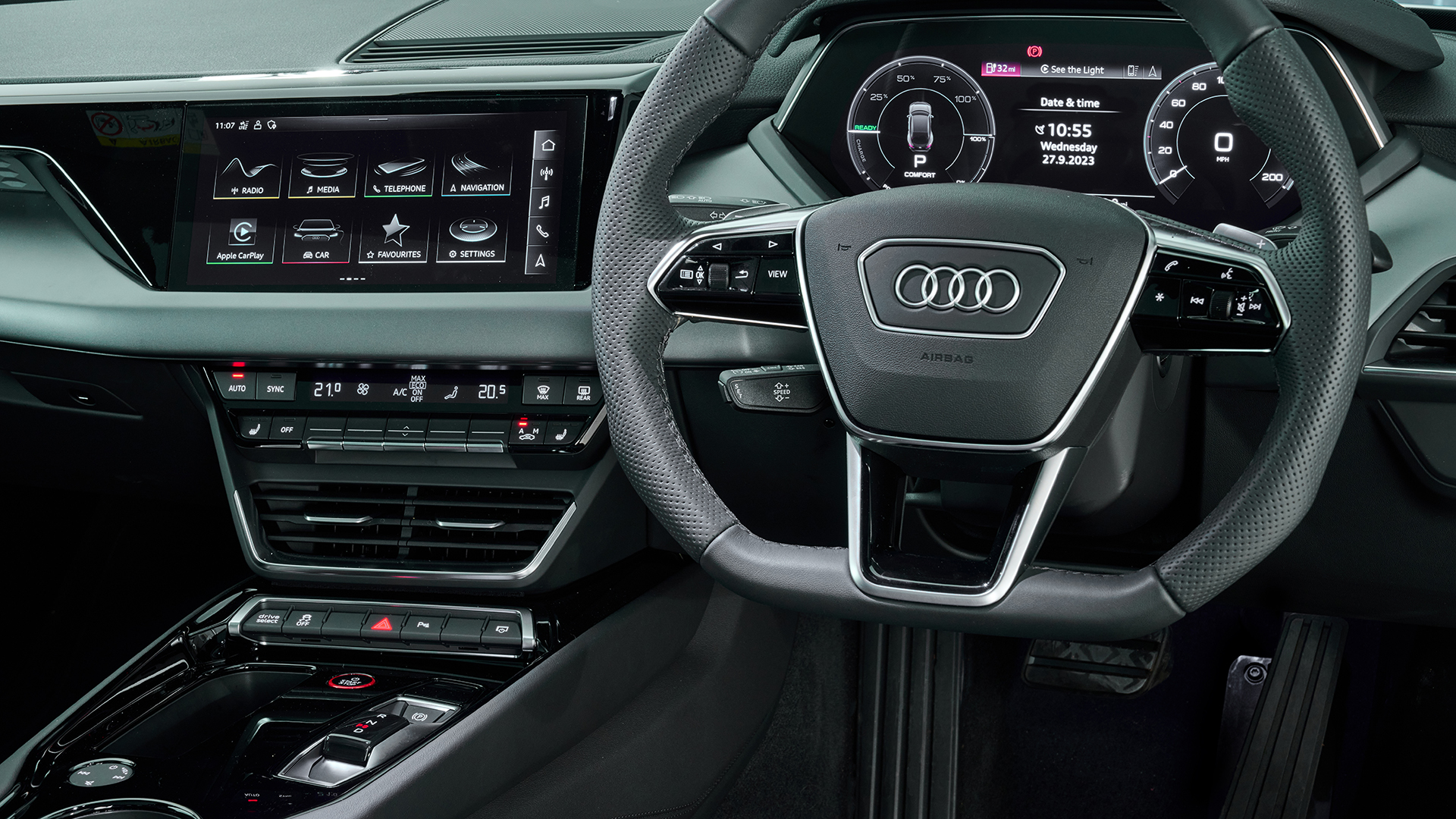
The tech
Inside the e-tron GT, the cabin feels modern and spacious, with the driver’s controls and screens all directed towards them, in a cockpit-like set-up. There are still plenty of buttons and controls here, outside of the main screens, so regular Audi drivers will feel at home. However, the two displays do account for the majority of the information needed.
Behind the steering wheel, the so-called Audi Virtual Cockpit is a 12.3-inch TFT screen. This not only displays the regular driver information, such as speed and power but can also show navigation, music, charging and phone info, with the ability to cycle through the options and change between layouts from the buttons on the steering wheel.
The centre screen is a 10.1-inch touch display that is angled slightly towards the driver. This screen provides access to vehicle settings, infotainment and navigation. It also supports both Android Auto and Apple CarPlay connections, allowing your phone to take over the display.
Climate controls are on a series of buttons under the central display, with further buttons for drive modes, seat warmers, traction control, parking camera, hazard lights and more. There’s also a separate entertainment wheel control that combines power, skip and volume controls.
The model I tested didn’t have a great deal in the way of advanced vehicle controls – there was no lane centring, adaptive cruise control or automatic parking – though all of those options are available for the Audi e-tron GT. It seems strange not to offer a lot of these features as standard, but in doing so, it manages to keep the entry price down for those who prefer manual control.
Even though the e-tron GT is only two years old, the pace of in-car tech does make this interior feel a little old by comparison. For a flagship model, the finish can feel a bit basic in places, with large areas of gloss black plastic (even when opting for the premium trimmings) and the centre screen feels a little small after driving some other premium models.
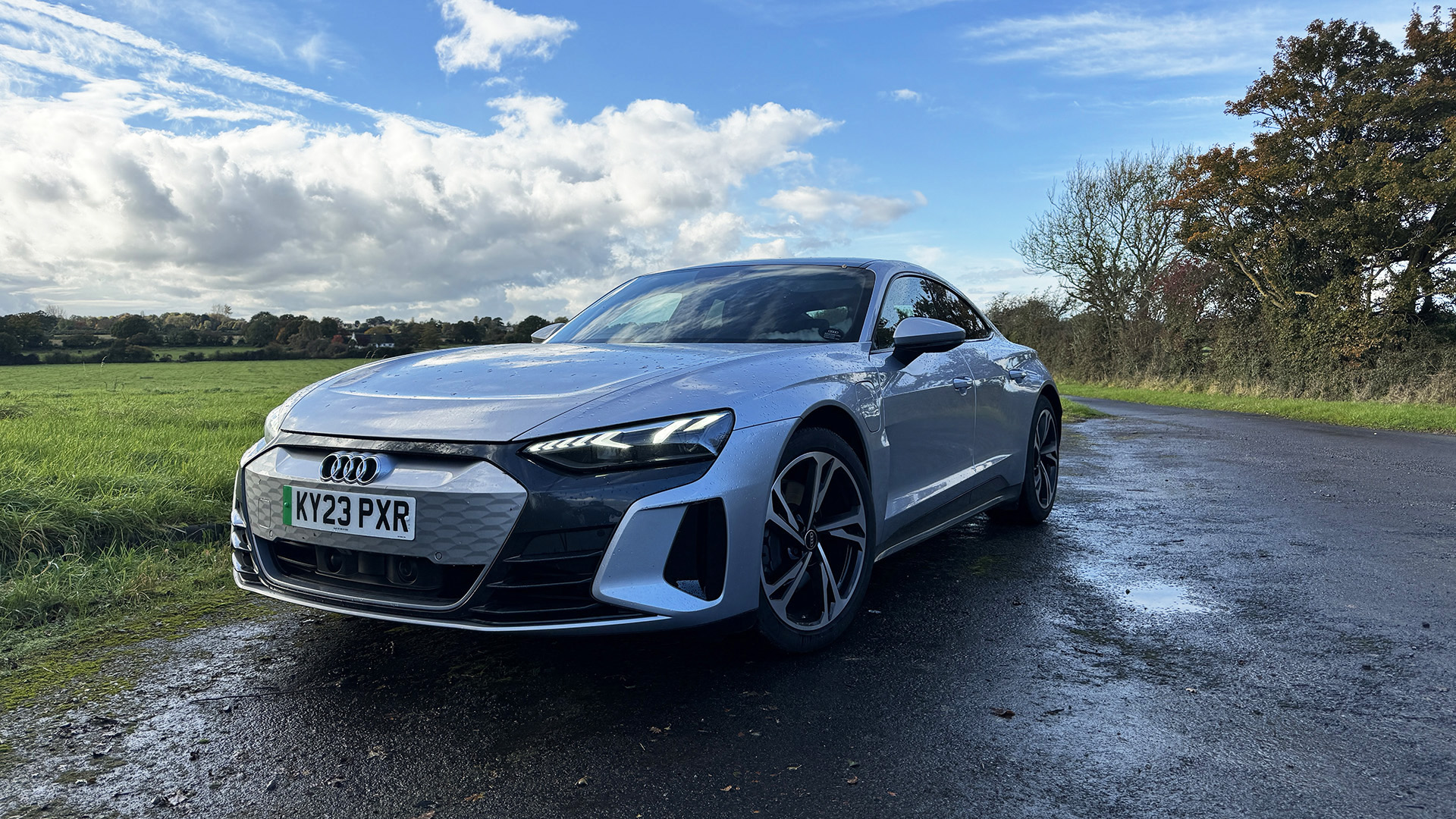
The drive
Performance from the e-tron GT is what you would expect from a large and powerful GT model. It has up to 530 mechanical horsepower delivering acceleration from 0-62mph in just 4.1 seconds. Opt for the sportier RS version and you can get up to 646ps and a 3.3-second 0-62mph.
Yes, you can get faster EVs. Even the Ford Mustang Mach-E GT version will do 0-62mph in 3.7 seconds, and the Porsche Taycan Turbo S can do up to 2.8 seconds, but the e-tron still feels pretty fast when you put your foot to the floor. And thanks to the lower seating position here than in an SUV, you really get to appreciate that speed.
For such a large car it handles really well, feeling glued to the road even when pushed through corners. There’s a synthesised sound that accompanies the acceleration and can be heard both inside and outside of the car. While this is not designed to sound exactly like an engine, it does sound more mechanical than other EVs and provides just enough feedback inside the car when you’re driving.
Being on the market for a couple of years, the range of the Audi e-tron GT does look a little restrictive by newer model standards. The WLTP range is given as 305 miles, while the American EPA estimated range is 249 miles. With a full battery, the car normally shows around 260 miles for me, so both are probably fair estimates.
It uses a generously sized 93kWh battery and uses 800V architecture, so it can charge at up to 270kW with a compatible fast charger. That means that you could charge from 5% to 80% in under 23 minutes at a full 270kW. I found that it could still do it in around 30 minutes with a relatively fast IONITY fast charger, topping out at around 140kW.
So while the total range isn’t huge, you can top up again quickly. The issue here is the power consumption and being a performance car, it’s quite a lot. Audi quotes 201-204 Wh / km, or around 3.05-3.1 mi/kWh. With a mix of city and motorway driving I found I get around 2.8 mi/kWh. If you set the car in Eco mode, it’s possible to get much better mileage, but that’s not really the point of a car like this.
While this might be a consideration for those who regularly drive long distances, for city use it’s more than enough. You just need to ensure that you have a charger at home or work (or both), otherwise those charging bills will mount up.
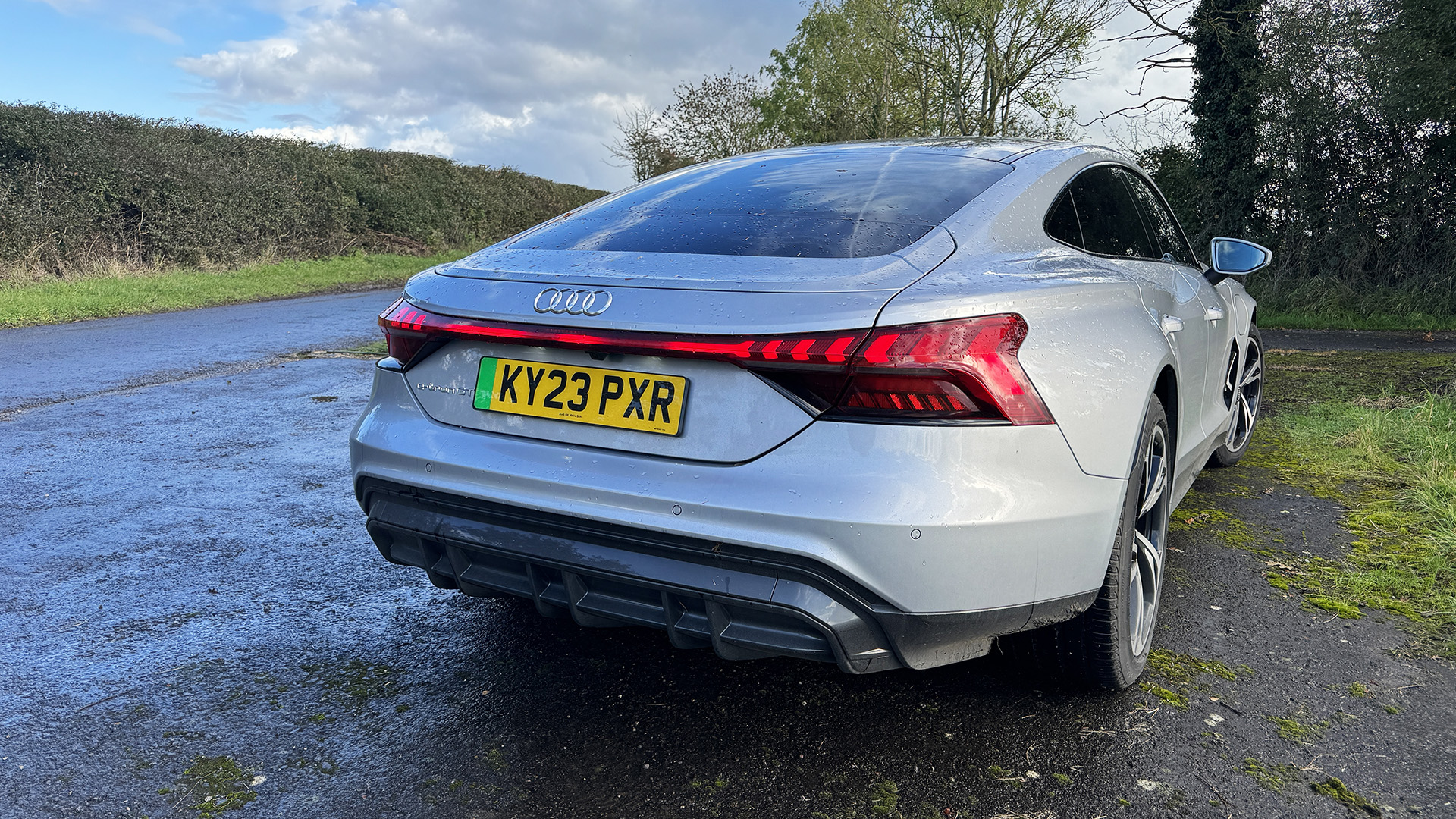
Verdict
Audi’s performance cars, like the R8 and TT are iconic designs that have proved hugely popular and elevate the brand. The e-tron GT is undoubtedly in the same class as these models and is one of the best-looking EVs on the market.
The e-tron GT really does turn heads wherever it goes. On the inside, however, it’s not as luxurious as you might expect. An abundance of gloss black plastic and not a lot of tech as standard. To get all the tech, you will need to spend a little more on the car, but even then the displays and functions aren’t range-beating.
This is a driver’s electric car though, and the driving experience is incredible. For the size of the car, it handles exceptionally well. The downside of course is that the consumption of that large battery is considerable, resulting in a relatively short range.
The biggest question for the potential buyer is whether to choose between the Audi e-tron GT and the Porsche Taycan 4S. Those with a sensible head should choose the Audi, as it’s a couple of grand cheaper for a similar spec, and promises a little more range while it’s at it. However, it’s easy to be swayed by the more gadget-heavy interior of the Porsche, as well as the badge.
Also consider
Price and spec-wise, the base e-tron GT lines up with the Porsche Taycan 4S, but Porsche also offers the standard Taycan for nearly 10k less. This has a lesser 408ps (mechanical horsepower) and a slower 5.4-second 0-62 mph acceleration, but still offers a similar 2.6-3.17mi/kWh efficiency and roughly 260 miles of range.
The Taycan range also includes Sport and Cross Turismo versions, giving a choice of 14 models in total. The Porsche Taycan 4S Sport Turismo combines the extra luggage space that the Turismo rear gives you (much like a shooting brake) with a sportier spec. This has 530ps, a 4-second 0-62 mph acceleration and up to 274 miles of range. Starting at £91,700, it will cost you a bit more though.
For those that want a little more power, the Audi RS e-tron GT starts from £119,000 but offers a 3.3-second 0-62 mph acceleration and 646 mechanical horsepower. Not only does this model give that sportier performance but it comes with more toys as standard, including head-up display and parking assist. The adaptive cruise control, however, is still extra.







